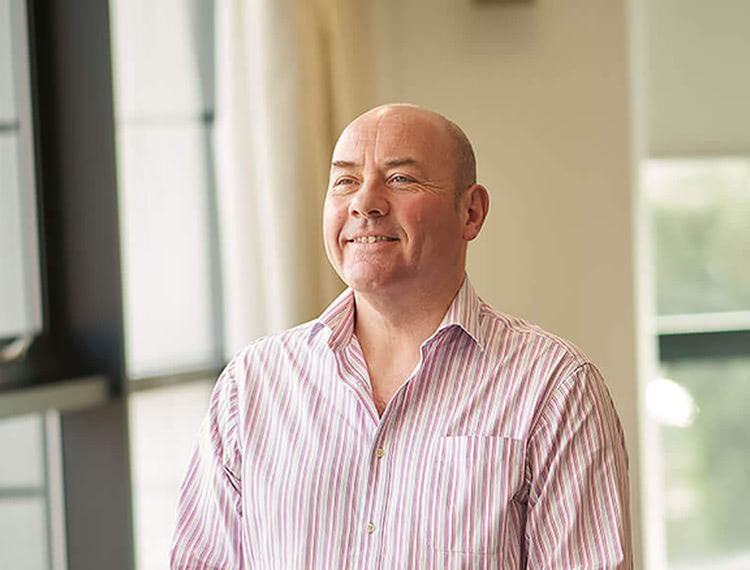Post-pandemic: What does this mean for the NHS workforce?

#InternationalNursesDay 2020: The importance of the healthcare sector to society
On #InternationalNursesDay, I pay tribute to Florence Nightingale, pioneer of modern nursing, who was born 200 years ago today.
Thank you to all of our amazing nurses in the UK who are taking care of us, especially in this very difficult time. You are the very best of us. pic.twitter.com/nCyCbeoWSQ
— Boris Johnson #StayAlert (@BorisJohnson) May 12, 2020
Dr Alan Williams, Academic Lead for Nursing and Perioperative Practice @DerbyUni marks International Nurses Day 2020 today (May 12) by discussing why he is proud of his profession and the wider healthcare sector and why it should be celebrated and appreciated all year round:
The World Health Organisation has deemed 2020 as the ‘Year of the Nurse and the Midwife’ and, as a registered nurse for over 30 years, this makes me extremely proud of my profession. It is also 200 years since Florence Nightingale was born. However, little did we know just how prominent the words “nurse” and “Nightingale” would be, especially in the United Kingdom, during the early months of 2020.
I am, of course, referring to the COVID-19 pandemic that has spread rapidly across the world and has still some way to go. There are many unsung “heroes” at this difficult time, and the role of the registered nurse, whether caring directly for people affected by the pandemic or providing other services to those in need, is vital across the world. The images of nurses, other health professionals and support staff who are keeping the intensive care facilities operating is humbling and can make those who are at a distance from clinical practice think “what could I do to help overcome COVID-19?”
Many are supporting efforts to overcome the pandemic, including University of Derby staff and students. My role is best placed supporting those on the frontline delivering care while studying and helping them make the best choice during these exceptionally difficult times.
Impact of COVID-19 on the workforce
The immediate effects on nurses, other healthcare professionals and key workers is clear to see, particularly from media reports. These include a hugely increased workload, concern for one’s own or loved one’s health and just what the future may hold. However, we also need to consider how we, as the nursing profession, can mitigate unforeseen consequences. An essential aspect of nursing and nurse education involves assessment where clinical reasoning and intuition can alert the nurse something is just not right. The ability of a nurse to maintain a calm, composed manner and the innate humanity seen by so many people hospitalised by the pandemic is a simple and effective method of providing reassurance. And, once we return to some semblance of normality, nurses will remain vigilant for signs of difficulties.
In the UK, the pandemic has interrupted “normal service” with the immediate priority to slow the spread of the virus and gain control. However, people have and will still suffer ill health, whether that is a physical illness (cancer, a heart attack or stroke), psychological ill health such as anxiety or depression, or wider effects that school, community or drug and alcohol liaison nurses will address.
The longer-term effects of the pandemic across the UK and the world will affect people in many ways. Different areas of the world will have their own priorities and nurses will identify what is important to an individual. In developed countries, unemployment can have a dramatic effect on an individual’s physical and psychological wellbeing, whereas migrant populations will, by necessity, prioritise basic survival needs.
Nurses, whether they care for people in towns in the United Kingdom or refugee camps in the Middle East, will have to think creatively of how to improve the health of individuals and influence society. They will do this by working together with health professionals and other services to provide solutions to overcome the infection. When the pandemic has been subdued, nurses will remain vigilant to signs of any return, reminding people that simple effective measures such as handwashing can break the chain of many – not just coronavirus – infections, just as Florence Nightingale did well over a century ago.
Post-pandemic: what does this mean for the NHS workforce?
None of us can know what the full effects of COVID-19 will be and, in a sporting analogy, as of May 2020, we are probably only ten or fifteen minutes into the eighty minute game with extra time to come, though games do not get more serious than this pandemic.
So, when the pandemic is over – and it will be – what will the healthcare sector look like? There will certainly be a heightened awareness of how important health is and what individuals can do to improve their own and society’s health. The visibility of nurses remains high and, though in recent years there has been a decrease in numbers wishing to become a nurse, I do think there will be more people considering a career in healthcare.
How long this global pandemic will last, I cannot be certain. However, remembering 2020 will remind everyone of the contribution nursing made to overcoming the pandemic. The less visible, though arguably as important, area of social care should be more prominent in all our minds as health and social care is inextricably linked. I hope the pandemic will result in much closer co-operation between organisations and a kinder community evolves across the world.
What we can say is that nurses will remain central to a caring society wherever they are in the world and we should remember how they help us and society every day; the British Prime Minister Boris Johnson certainly does. As a former colleague of mine said: “try to imagine a world without nurses”; you will soon realise how important the profession is to society.
Dr Alan Williams, Academic Lead for Nursing and Perioperative Practice at the University of Derby












Responses